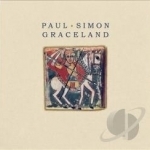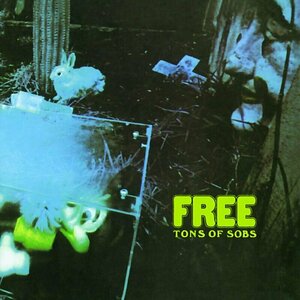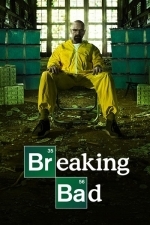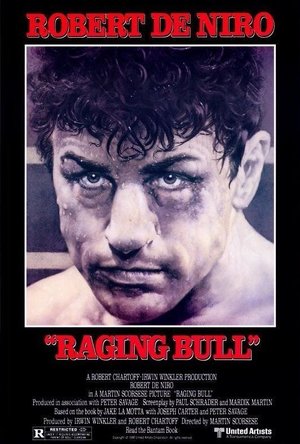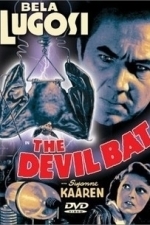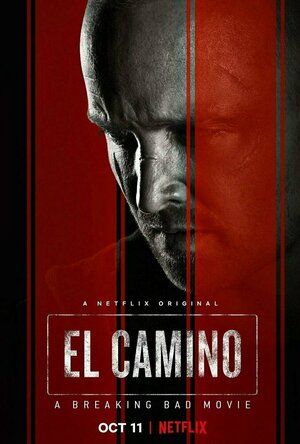Search
Search results
Ross (3284 KP) rated Graceland by Paul Simon in Music
Jun 29, 2020
Rolling Stone's 71st greatest album of all time
Paul Simon's "discovery" of South African musical styles and using them to restart his flagging career after splitting up with Garfunkel and reducing sales on his solo albums. Musically more interesting than his other efforts, I would still rather listen to the artists that inspired it. I find Paul Simon to be quite weaselly and I can't get past that. The album was unarguably ground-breaking for its time (except a white man using music of black origin for his own gain, that was nothing new) and I would hope opened doors for world music artists.
Biff Byford recommended Tons of Sobs by Free in Music (curated)
Bubba Gee (147 KP) rated Breaking Bad in TV
Jun 23, 2019
The best ever
Contains spoilers, click to show
This is an epic journey of a nice guy gone bad as he simply has had enough of being shat on.
We start with a nice mild mannered high school chemistry teacher Walter White (played by Bryan Cranston) who pays his taxes has an average life and finds out he has cancer.
Through his brother in law, a DEA agent and all around asshole, Walter White discovers how with his knowledge of chemistry he can make the purest crystal meth on the street.
Enter Jesse Pinkman (played by Aaron Paul)
an ex student of Mr White and low level weed dealer.
Walter uses Jesse to connect himself to the local alberquerque criminal underworld and begins production.
Over the next few series Walter White evolves into his alter ego Heisenberg, a badass, producer, seller, murderer, and generally all around kingpin of New Mexico.
From dealings with other criminals to Mexican drug cartels and beyond,this is an epic tale of a good man gone bad with murder, revenge, international trafficking, twists and turns all along the way.
It really is an absolute credit to the writers and cast.
It also enforces that you shouldn't underestimate anyone no matter how insignificant they may seem.
We start with a nice mild mannered high school chemistry teacher Walter White (played by Bryan Cranston) who pays his taxes has an average life and finds out he has cancer.
Through his brother in law, a DEA agent and all around asshole, Walter White discovers how with his knowledge of chemistry he can make the purest crystal meth on the street.
Enter Jesse Pinkman (played by Aaron Paul)
an ex student of Mr White and low level weed dealer.
Walter uses Jesse to connect himself to the local alberquerque criminal underworld and begins production.
Over the next few series Walter White evolves into his alter ego Heisenberg, a badass, producer, seller, murderer, and generally all around kingpin of New Mexico.
From dealings with other criminals to Mexican drug cartels and beyond,this is an epic tale of a good man gone bad with murder, revenge, international trafficking, twists and turns all along the way.
It really is an absolute credit to the writers and cast.
It also enforces that you shouldn't underestimate anyone no matter how insignificant they may seem.
Andy K (10823 KP) rated Raging Bull (1980) in Movies
Feb 15, 2018
Nothing against Goodfellas, Taxi Driver, Mean Streets and other Scorsese masterpieces; however, this has to be his greatest work of all time.
Robert De Niro completely transforms himself into Jake La Motta both physically, mentally and emotionally. Joe Pesci and Cathy Moriarty are also magnificent in support of the story of a courageous boxer and his fall from grace.
Film students still study the directing, cinematography and the stunning visuals of the film in glorious black and white.
The screenplay by Paul Schrader and Mardik Martin is completely believable and make you empathize with this rough, gritty character in his world when he is up on top and on his way down.
A masterpiece!
Robert De Niro completely transforms himself into Jake La Motta both physically, mentally and emotionally. Joe Pesci and Cathy Moriarty are also magnificent in support of the story of a courageous boxer and his fall from grace.
Film students still study the directing, cinematography and the stunning visuals of the film in glorious black and white.
The screenplay by Paul Schrader and Mardik Martin is completely believable and make you empathize with this rough, gritty character in his world when he is up on top and on his way down.
A masterpiece!
Biff Byford recommended Framed/Next by The Sensational Alex Harvey Band Rock in Music (curated)
Justin Hawkins recommended The Beatles (White Album) by The Beatles in Music (curated)
Matthew Krueger (10051 KP) rated The Devil Bat (1940) in Movies
Jun 17, 2020
Bela Lugosi (1 more)
Bats
Let The Bats Fly
The Devil Bat- a nice classic black and white horror film that starred Bela Lugosi as the villian. Which he is excellent and perfect as. Bela Lugosi perfects the villain role. I love him as a actor. Anways back to The Devil Bat.
The plot: Dr. Paul Carruthers (Bela Lugosi) is frustrated because he thinks his employers, Mary Heath (Suzanne Kaaren) and Henry Morton (Guy Usher), have cheated him out of the company's profits. He decides to get revenge by altering bats to grow twice their normal size and training them to attack when they smell a perfume of his own making. He mixes the perfume into a lotion, which he offers as a gift to Mary and Henry. When they turn up dead, a newspaper reporter (Dave O'Brien) decides to investigate.
Its a classic fun entertaining horror movie with bats attacking people and their master is Bela Lugosi so that is a plus.
The plot: Dr. Paul Carruthers (Bela Lugosi) is frustrated because he thinks his employers, Mary Heath (Suzanne Kaaren) and Henry Morton (Guy Usher), have cheated him out of the company's profits. He decides to get revenge by altering bats to grow twice their normal size and training them to attack when they smell a perfume of his own making. He mixes the perfume into a lotion, which he offers as a gift to Mary and Henry. When they turn up dead, a newspaper reporter (Dave O'Brien) decides to investigate.
Its a classic fun entertaining horror movie with bats attacking people and their master is Bela Lugosi so that is a plus.
Gene Simmons recommended The Beatles (White Album) by The Beatles in Music (curated)
Barry Newman (204 KP) rated El Camino: A Breaking Bad Movie (2019) in Movies
Feb 9, 2020
Contains spoilers, click to show
I’m of the opinion that ‘Breaking Bad’ is one of the greatest TV shows of all time and the ultimate example of how to end a TV show properly. Which is why when I heard this was being made I couldn’t help but be a bit apprehensive and unfortunately I did come away from this a bit underwhelmed. Aaron Paul puts in a great performance and I enjoyed catching up with Jesse and some other old faces again but this wasn’t really a story that absolutely needed to be told. I felt the action was a little flat and draggy at times as well. Barring a very brief crowd pleasing flashback cameo you really miss having Walter White on screen. Not having him there you realise just how much Bryan Cranston absolutely dominated the series and his absence is really felt. It’s still an enjoyable watch even if lacking the magic of the show and certainly worthy of your time but ultimately it probably didn’t need to have been made.
Cody Cook (8 KP) rated A Black Theology of Liberation in Books
Jun 29, 2018
James Cone is considered to be the founder of Black Liberation Theology, a variant of the Liberation Theology movement most widely connected with South American theologian Gustavo Gutierrez. Liberation Theology emphasizes those biblical concerns that white European flavored Christianity has often looked over– concerns like justice and liberation for the oppressed and downtrodden (Luke 4:16-21, Matthew 25:31-45, etc.). Though these emphases are quite important, in Liberation movements, they can often drown out other, extremely vital, elements of the Christian faith, as they clearly do in Cone’s Black Liberation Theology.
One major issue for Cone is one of authority. The experience of one group of people (the oppressed) becomes equivalent with universal truth, and not simply an important concern in Christian theology. In other words, Cone makes his own experience the judge of who God is and what God is for. While “white” (a term used by Cone not so much to reflect skin color but an oppressor mentality) Christianity commits this grave error without realizing it, Cone does so with full knowledge. So, for instance, while a conservative “white” theologian would say that his own views and actions *should* be directed by the scripture (whether or not he does in fact direct them by this standard), Cone makes the judgement of the oppressed black community the ultimate truth for them– and if mass violence against whites is decided by the group as the best means to effect their liberation, so be it. Cone explicitly distances himself from the approach of King, identifying more with the violence-prone philosophy of the Nation of Islam as propounded by Malcolm X. If someone criticizes his approach, he seems to assume that they’re doing so as a “white” oppressor and should be ignored– an oppressor has no moral right to question the rightness or wrongness of the actions of the people he is oppressing. This of course ignores the criticisms of violence, even from the oppressed, of black Christians like Martin Luther King Jr., Desmond Tutu, etc. Cone is also unfortunately either unfamiliar with or unconvinced by pacifist Christian claims to be committed to peaceful action, since he equates non-violence with inaction and acquiescence. While he is absolutely correct in seeing liberation as an important theme in the Christian faith, he, like “white” religionists, allows his own experience and emotions to determine what is right and wrong to the point of supporting evil in the interest of what he feels is best for his community. However, what can’t be said of Cone’s position on violence is that it is radical, because it is emphatically not. The political heroes of most white Americans are men who used violence to gain political autonomy. Thus, it is not radical for black men and women to look up to figures like Malcolm X and James Cone who advocate doing the same thing if it seems necessary for freedom and self-determination; it is merely status quo. The problem is that Jesus calls all men and women, regardless of color, to rise above the status quo and the myth of redemptive violence.
Seizing on that point, one major problem with Cone’s view of violent revolution is that when oppressed people rise up through violence, they become the oppressor– co-opting the tools of oppression and dehumanization. “Blacks” become “white” through the use of violence. Cone seems unaware of (doubtful) or unaffected by the history of the Bolshevik, Cuban, or French revolutions, wherein the oppressed quickly became the oppressors and became twofold more a child of hell than their oppressors. His view also reshapes Nat Turner, the slave who claimed to have been directed by God to murder white women and children, into an unqualified hero. Cone’s system re-establishes and re-affirms oppression– it does not end it.
For Cone, God is black and the devil is white, because God supports the oppressed and the devil supports the oppressor. But in so closely identifying God with blackness, the actions of those in the black community are now above being questioned, just like the actions of white enslavers were, according to them, above being questioned because they aligned themselves with God and those whom they oppressed with the devil.
What Cone is really trying to get at is that since Jesus supports the cause of the oppressed, the oppressor must so distance himself from his oppressor identity that he becomes indistinguishable from the oppressed– willing to suffer along with them– if he is to be Christ-like. In other words, the “white” must become “black.” Cone says that God can’t be colorless where people suffer for their color. So, where blacks suffer God is black. Taking this logic, which is indeed rooted in Scripture, where the poor suffer, God is poor. Where babies are killed in the womb, God is an aborted baby. Where gay people are bullied, God is gay. It is our obligation to identify with the downtrodden, because that’s what Jesus did. Paul, quoting a hymn of the church about Jesus, puts it this way:
“In your relationships with one another, have the same mindset as Christ Jesus:
‘Who, being in very nature God,
did not consider equality with God something to be used to his own advantage;
rather, he made himself nothing
by taking the very nature of a servant,
being made in human likeness.
And being found in appearance as a man,
he humbled himself
by becoming obedient to death—
even death on a cross!'”
–Philippians 2:5-8
Jesus not only gives up his power to express love to the powerless by identifying with them, He also takes on their sin and suffers with and for them. This is the essence of the gospel, and it often gets lost when we translate it into our daily lives. For Cone, this important truth gets lost in the banner of black militantism and the cycle of violence. For so many American Christians, it gets lost when they reduce the political nature of Christianity to scolding those whose private expression of morality doesn’t line up with theirs. We refuse to identify with sinners (which is a category we all fit into) in love.
One major issue for Cone is one of authority. The experience of one group of people (the oppressed) becomes equivalent with universal truth, and not simply an important concern in Christian theology. In other words, Cone makes his own experience the judge of who God is and what God is for. While “white” (a term used by Cone not so much to reflect skin color but an oppressor mentality) Christianity commits this grave error without realizing it, Cone does so with full knowledge. So, for instance, while a conservative “white” theologian would say that his own views and actions *should* be directed by the scripture (whether or not he does in fact direct them by this standard), Cone makes the judgement of the oppressed black community the ultimate truth for them– and if mass violence against whites is decided by the group as the best means to effect their liberation, so be it. Cone explicitly distances himself from the approach of King, identifying more with the violence-prone philosophy of the Nation of Islam as propounded by Malcolm X. If someone criticizes his approach, he seems to assume that they’re doing so as a “white” oppressor and should be ignored– an oppressor has no moral right to question the rightness or wrongness of the actions of the people he is oppressing. This of course ignores the criticisms of violence, even from the oppressed, of black Christians like Martin Luther King Jr., Desmond Tutu, etc. Cone is also unfortunately either unfamiliar with or unconvinced by pacifist Christian claims to be committed to peaceful action, since he equates non-violence with inaction and acquiescence. While he is absolutely correct in seeing liberation as an important theme in the Christian faith, he, like “white” religionists, allows his own experience and emotions to determine what is right and wrong to the point of supporting evil in the interest of what he feels is best for his community. However, what can’t be said of Cone’s position on violence is that it is radical, because it is emphatically not. The political heroes of most white Americans are men who used violence to gain political autonomy. Thus, it is not radical for black men and women to look up to figures like Malcolm X and James Cone who advocate doing the same thing if it seems necessary for freedom and self-determination; it is merely status quo. The problem is that Jesus calls all men and women, regardless of color, to rise above the status quo and the myth of redemptive violence.
Seizing on that point, one major problem with Cone’s view of violent revolution is that when oppressed people rise up through violence, they become the oppressor– co-opting the tools of oppression and dehumanization. “Blacks” become “white” through the use of violence. Cone seems unaware of (doubtful) or unaffected by the history of the Bolshevik, Cuban, or French revolutions, wherein the oppressed quickly became the oppressors and became twofold more a child of hell than their oppressors. His view also reshapes Nat Turner, the slave who claimed to have been directed by God to murder white women and children, into an unqualified hero. Cone’s system re-establishes and re-affirms oppression– it does not end it.
For Cone, God is black and the devil is white, because God supports the oppressed and the devil supports the oppressor. But in so closely identifying God with blackness, the actions of those in the black community are now above being questioned, just like the actions of white enslavers were, according to them, above being questioned because they aligned themselves with God and those whom they oppressed with the devil.
What Cone is really trying to get at is that since Jesus supports the cause of the oppressed, the oppressor must so distance himself from his oppressor identity that he becomes indistinguishable from the oppressed– willing to suffer along with them– if he is to be Christ-like. In other words, the “white” must become “black.” Cone says that God can’t be colorless where people suffer for their color. So, where blacks suffer God is black. Taking this logic, which is indeed rooted in Scripture, where the poor suffer, God is poor. Where babies are killed in the womb, God is an aborted baby. Where gay people are bullied, God is gay. It is our obligation to identify with the downtrodden, because that’s what Jesus did. Paul, quoting a hymn of the church about Jesus, puts it this way:
“In your relationships with one another, have the same mindset as Christ Jesus:
‘Who, being in very nature God,
did not consider equality with God something to be used to his own advantage;
rather, he made himself nothing
by taking the very nature of a servant,
being made in human likeness.
And being found in appearance as a man,
he humbled himself
by becoming obedient to death—
even death on a cross!'”
–Philippians 2:5-8
Jesus not only gives up his power to express love to the powerless by identifying with them, He also takes on their sin and suffers with and for them. This is the essence of the gospel, and it often gets lost when we translate it into our daily lives. For Cone, this important truth gets lost in the banner of black militantism and the cycle of violence. For so many American Christians, it gets lost when they reduce the political nature of Christianity to scolding those whose private expression of morality doesn’t line up with theirs. We refuse to identify with sinners (which is a category we all fit into) in love.
